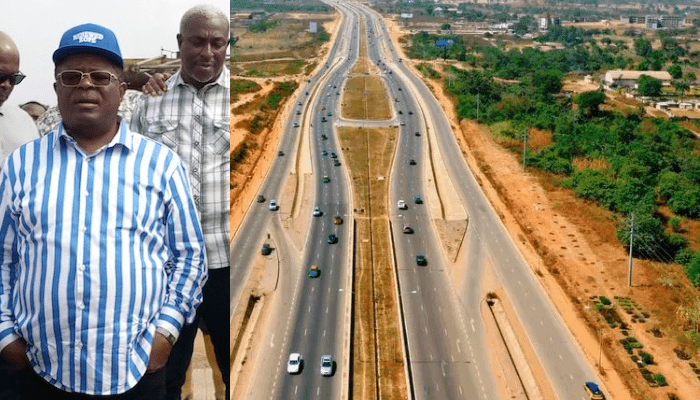Breaking News
NASS did not okay the Lagos-Calabar coastal highway – REPS
The Attorney-General of the Federation, the Minister of Justice, the Minister of Works, and the Minister of Finance were also urged by the House to make sure that all project guarantees and credit enhancement instruments are forwarded to the National Assembly for approval.

Yesterday, the House of Representatives declared that the National Assembly had not approved the contentious Lagos-Calabar coastal route.
It also decided to look into the coastal highway’s procurement procedure.
The Attorney-General of the Federation, the Minister of Justice, the Minister of Works, and the Minister of Finance were also urged by the House to make sure that all project guarantees and credit enhancement instruments are forwarded to the National Assembly for approval.
The Green Chamber also directed its committees on Works and Procurement to look into how the project contract was procured.
Remember that the project has caused a great deal of controversy. Former Vice President Atiku Abubakar and Labour Party presidential candidate Mr. Peter Obi have asked the Federal Government to come clean on the project.
The motion, titled “Urgent need to investigate the procurement process and award of contract for the Lagos-Calabar Coastal Highway’’, was moved by Austin Achado(APC-Benue) at plenary in Abuja.
Moving the motion, Achado said award of the contract did not follow due process, adding that it also did not get the approval of the National Assembly, hence the need to thoroughly investigate the procurement process of the contract.
Achado said: “The House is disturbed that the contingent liabilities accruing to the Federal Government of Nigeria on this project violate the Debt Management Office (Establishment) Act of 2023, as Section 22(3) states that the minister shall not guarantee an external loan unless the terms and conditions of the loan shall have been laid before the National Assembly and approved by its resolution.
‘No NASS approval for debt guarantees’
“The guarantees issued to cover the debt financing component of this project do not have the approval of this National Assembly.”
Speaking further, he noted that the Federal Ministry of Works had executed an Engineering Procurement Construction and Finance (EPC+F) contract, in favour of Hitech Construction Company Nigeria Limited, for the delivery of the 700km Lagos to Calabar Coastal Road and Rail Project estimated at a rate of N4.329 billion per kilometre, using reinforced concrete technology for a carriage width of 59.7metres to include 10 lanes, shoulders and rail with additional designs of service ducts, street lights, drainages and shore protection.
He further noted that the project, with the prospect of providing easy access for the movement of goods and services across the nation, has a financing structure, as announced by the Minister of Works, which required the Federal Government to provide 15 to 30% co-financing, while the private sector counterpart will provide the balance, and toll the road when completed for a minimum period of 15 years, to ensure full recovery of all debts and equity applied for the delivery of the project.
The lawmaker expressed concerns that the procurement strategy might have violated the Public Procurement Act 2007, Section 40(2) which required that where a procuring authority adopts to use Restrictive Tendering Approach, it should be on the basis that the said goods and services are available only from a limited number of suppliers and contractors and as such, tenders shall be invited from all such contractors who could provide such goods and services.
According to him, the procurement strategy adopted by the Federal Ministry of Works for the award of the contract violates the Infrastructure Concession and Regulatory Commission Act 2905, as Section 4 of the Act outlines that all approved infrastructure projects and contracts for financing, construction and maintenance must be advertised for open competitive public bid, in at least three national dailies and Section 5 of the Act further clarifies that any direct negotiations with only one contractor could be allowed, only after exhausting the provisions of section 4 .
He expressed concern that the Federal Ministry of Works, in promoting the project, has provided a rate per kilometre for the planned works, but has not provided the private partner’s financing sources, structure and competitiveness, as this was likely to create contingent liabilities to the Nigerian government.
The House, therefore, asked it’s committees to report back within four weeks.




















